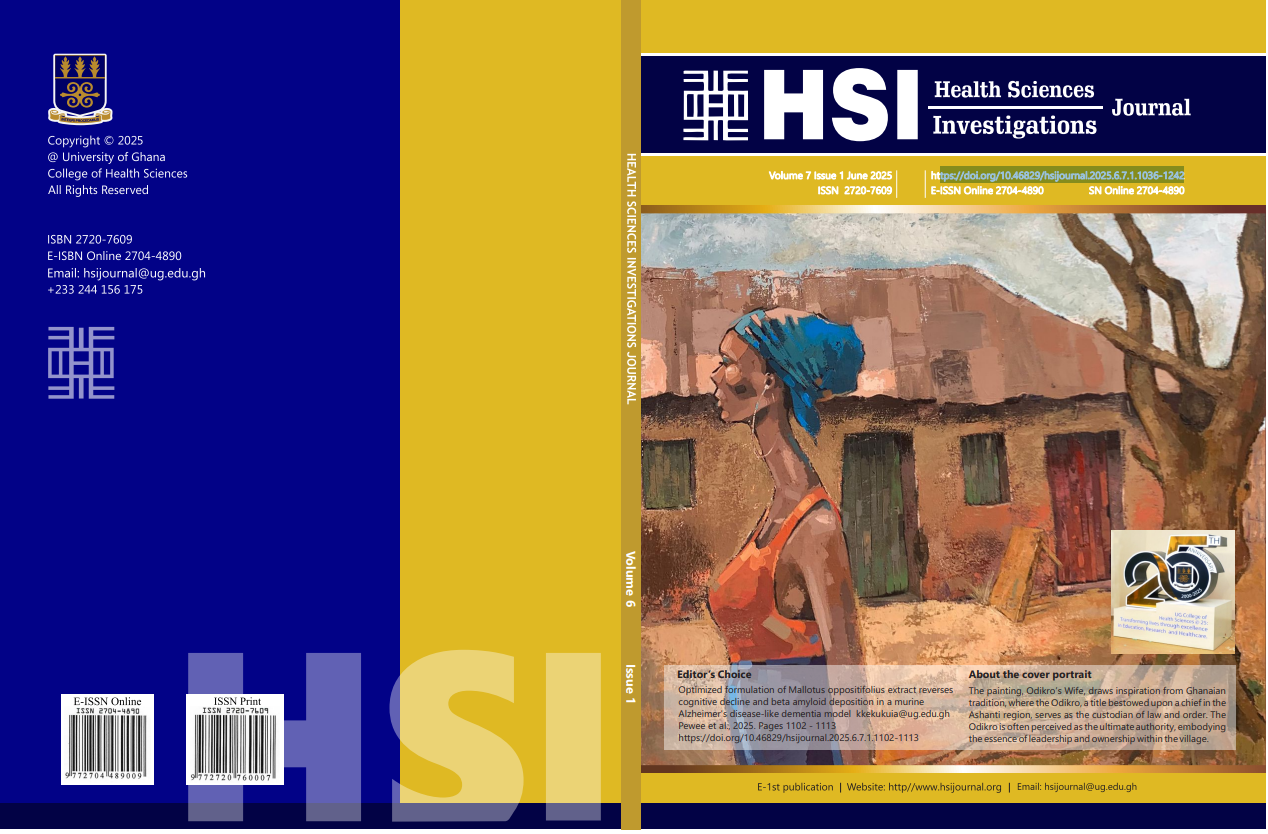Sedative-analgesics use in Intensive Care: A Critical analysis of prescribed analgo-sedatives, treatment outcomes, and adverse drug events in adult patients at Komfo Anokye Teaching Hospital
Analgo-sedatives use in ICU of Komfo Anokye Teaching Hospital
Abstract
Background: Studies on the use of sedative-analgesics are limited in Africa and developing countries despite their high usage, benefits, and side effects among patients. Recent evidence on analgo-sedation suggests that protocols considering up-to-date scientific evidence and individual patient characteristics can improve treatment outcomes.
Objective: This study aimed to analyse the prescribed analgo-sedatives, protocols, outcomes and adverse events of sedative-analgesics in the ICU in a teaching hospital in Ghana.
Methods: This retrospective study reviewed data from adult patients admitted to the ICU of KATH from January 2017 to December 2019. Patient characteristics such as socio-demography, sedative-analgesic prescribed, and respondents' outcomes, including length of stay, survival and associated adverse drug events (ADE), were collected for analysis. The chi-square test was used to analyse associations between analgo sedative usage, speciality and ICU stay, with p < 0.05 considered statistically significant.
Results: The most prescribed analgo-sedatives were Morphine+Midazolam (53.24%), Morphine (16.19%) and Midazolam (6.47%). The relative risk of developing an ADE with analgo-sedation use was 2.1 (p < 0.001). The median duration of stay was longer in sedated patients (3 days, IQR: 2-9) compared to non-sedated ones (1 day, IQR: 1-3, p < 0.001). Analgo-sedation also significantly increased the occurrence of adverse events (RR 2.1; p < 0.001). Patients who experienced ADEs had 98% decreased odds of survival compared to those without ADEs
(aOR: 0.02, 95% CI: 0.01 - 0.05, p < 0.001). Critically ill patients had 73% lower odds of survival than severely ill patients (aOR: 0.27, 95% CI: 0.15 - 0.48, p < 0.001).
Conclusion: Analgo-sedation use is associated with prolonged ICU stays due to a significantly higher risk of adverse drug events, and treatment outcomes are associated with sedation protocols and patients' pre-existing medical conditions.


